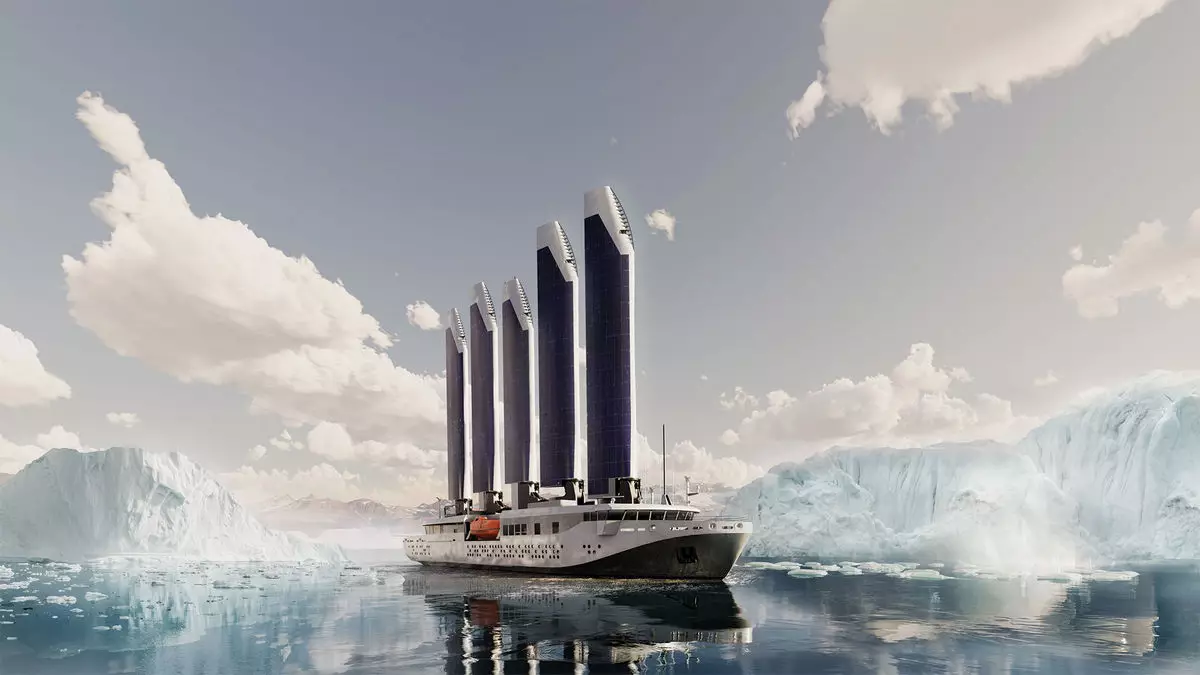In recent years, the conversation framed around sustainability within the cruise industry has intensified, particularly focusing on expedition lines that spearhead eco-friendly initiatives. These unique providers have emerged as the vanguard of responsible tourism in an era where consumers are increasingly mindful of their ecological footprint. However, as these lines innovate to lower environmental impact, they face a stark reality: consumers are not yet ready to embrace the associated price premiums. Despite their good intentions and extensive efforts, expedition cruise executives acknowledge a fundamental truth: sustainability must compete with pricing pressures in a fiercely competitive market.
This disconnect can be unsettling. Notably, seasoned executives like Ashton Palmer, president of Expedition Trips, openly admit to the complexities of consumer psychology. Fancy sustainable practices might not translate into higher demand if customers are unwilling to part with extra cash. Palmer’s sentiments resonate across the industry, suggesting that cruise lines must tread carefully as they navigate this landscape marked by high consumer expectations paired with price sensitivity.
The Consumer Paradox
Echoing the views of other industry leaders, Ponant CEO Samuel Chamberlain pointed to a paradoxical landscape where a vocal demand for sustainability abandons supporting evidence in the form of purchasing choices. Despite a growing public awareness surrounding climate issues, behavior doesn’t always align with values. The airline industry’s emissions-offset options serve as a pertinent analogy; although consumers express commitment to bettering the planet, their reluctance to pay a nominal fee for sustainability showcases gaps between intention and action. Chamberlain’s observations directly challenge cruise lines to reconsider how they market their eco-initiatives.
Interestingly, the narrative becomes more nuanced when viewed through the prism of the competitive expedition market, which, according to Claire Maguire of Cruise Planners, has become inundated. The surge of new vessels in the previous decade left the industry reeling post-pandemic, leading consumers to adopt stricter budgeting and value-preferencing habits over ideals of ecological impact. In this challenging scenario, the focus on value and inclusivity within cruise pricing often overshadows sustainability discussions.
Long-Term Vision: Investing in a Sustainable Future
Despite these immediate pressures, reviewing their practices reveals a forward-thinking approach to sustainability among prominent expedition lines. Cruise companies like Hurtigruten are investing heavily in hybrid-powered ships and alternative energy sources. Gerry Larsson-Fedde, Hurtigruten’s COO, underscores that such investments aren’t merely about idealism; they represent strategic financial foresight. A significant initial investment in greener technology can lead to substantial long-term savings on fuel and emissions. For an industry that thrives on its environmental journeys, cultivating an awareness of how their operations align with eco-friendly practices is vital for survival.
Moreover, the shift towards sustainable ships is becoming a necessary element for maintaining operational longevity. Hurtigruten has spent 130 years navigating sensitive Arctic regions, showcasing a commitment to continue operating responsibly. As Larsson-Fedde points out, transforming ship technology isn’t merely an upgrade but a proactive approach to ensure future operations enjoy ecological accessibility.
Among the various innovations taking shape, Ponant’s development of a wind-powered vessel emphasizes the emphasis on harnessing renewable energy. As they set ambitious targets for zero-emission operations by 2030, both Hurtigruten and Ponant aim not only to elevate their brands but also redefine competitive standards within expedition cruising.
The Need for Real Change
The landscape extends beyond established players. The emergence of new expedition lines like Selar signifies an industry ripe for transformation. With an offering that primarily utilizes wind and solar energy, Selar’s approach to cruising demands a shift away from conventionalism—pushing the cruise market to adapt to the realities of eco-conscious consumers. Co-founder Sophie Galvagnon captures the essence of urgency in the industry, advocating for faster evolution to align offerings with growing consumer demands for responsible cruise experiences.
However, even with a deep-rooted commitment to environmental responsibility, Selar demonstrates an understanding that consumers’ preferences still lean heavily towards the experiential aspects of travel. The premium consumers might be willing to pay centers more around exclusive travel experiences than outright sustainability. This embodiment of friction highlights a crucial part of the conversation about consumer priorities.
Instead of a superficial engagement, companies need to promote sustainable practices in the journey itself, enlightening passengers about the steps taken and encouraging a culture of collective responsibility. For many travelers, the aspiration to explore pristine landscapes, like those found in the Arctic, embodies a desire for meaningful interactions with nature. Aligning these sentiments with responsible travel is paramount.
As expedition cruise lines continue to innovate and adopt sustainable practices, crucial dialogues about the expectations and priorities of customers must persist. The industry stands at a transformative juncture that could reconcile the gap between consumer wish lists and business realities.


Leave a Reply